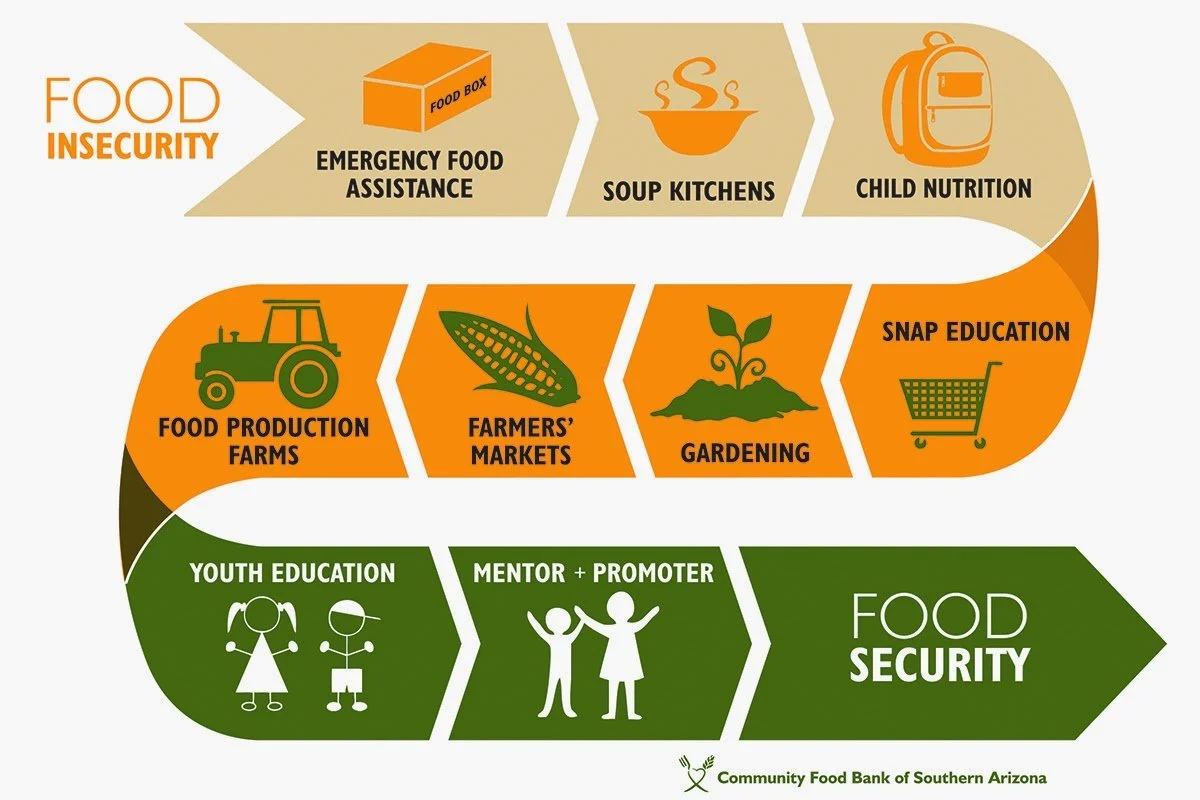Empowering Food Security: Harnessing the Power of Data
In a world marked by rapid population growth, climate change, and socio-economic disparities, ensuring food security has become an increasingly complex challenge. Food security, defined as the availability, access, and utilization of food for a healthy and active life, is a fundamental human right. To address this global imperative effectively, leveraging the power of data has become indispensable. There are many amazing programs that are implemented, but that are poorly tracked. In this blog post, we will delve into the importance of using data for food security programs and how it can revolutionize our approach to eradicating hunger at county, state, national, and global levels.
Precise Resource Allocation:
One of the key advantages of utilizing data in food security programs is the ability to allocate resources more precisely. Through data analysis, policymakers can identify regions or communities with higher levels of food insecurity, allowing for targeted interventions. This not only optimizes the allocation of resources but also ensures that aid reaches those who need it the most.
Forecasting and Early Warning Systems:
Climate change has brought about increased uncertainty in agricultural production, making it crucial to have robust forecasting systems. Data-driven models can analyze historical weather patterns, soil conditions, and other relevant factors to predict potential food shortages or crop failures. Early warning systems based on data empower communities and governments to take proactive measures, such as implementing drought-resistant crops or establishing emergency relief plans.
Market Efficiency and Price Stability:
Data plays a pivotal role in understanding market dynamics, price fluctuations, and supply chain inefficiencies. By analyzing market data, policymakers can develop strategies to stabilize food prices and ensure affordability for vulnerable populations. Additionally, data-driven insights can enhance supply chain efficiency, reducing food wastage and making food distribution more effective.
Nutritional Assessment and Planning:
Understanding the nutritional needs of a population is crucial for developing effective food security programs. Data can be used to assess the nutritional status of communities, identify prevalent deficiencies, and tailor interventions accordingly. This ensures that food aid is not only available in sufficient quantities but is also nutritionally balanced to address specific health concerns.
Monitoring and Evaluation:
Data facilitates continuous monitoring and evaluation of food security programs. By tracking key performance indicators and impact metrics, organizations can assess the effectiveness of their interventions. This feedback loop enables adaptive management, allowing programs to evolve and improve based on real-time data, ultimately maximizing their positive impact.
Community Empowerment:
Empowering local communities is a cornerstone of sustainable food security initiatives. Data-driven approaches can provide communities with the information and tools needed to become self-reliant. This may include training farmers in data-driven agriculture techniques, promoting sustainable farming practices, and fostering community-led initiatives to address specific challenges.
In the quest for national and global food security, harnessing the power of data is not just beneficial—it is essential. By integrating data-driven approaches into food security programs, we can enhance efficiency, target interventions more effectively, and empower communities to break free from the cycle of hunger. As technology continues to advance, the role of data in shaping the future of food security will undoubtedly become even more critical. It is time to embrace the data revolution and build a world where no one goes to bed hungry.

